Arthritis in Senior Golden Retrievers: A Comprehensive Management Guide
One of the most prominent health issues that a senior Golden Retriever can be prone to is arthritis in dogs. Although this degenerative joint disease is quite common among all dog breeds, it definitely isn't something that you should just ignore.
Besides subjecting your much older pooch to continuous bouts of pain and discomfort, dogs with arthritis can also be prone to a lot of secondary health issues that many pet parents seem to don't know about. This is the reason why we've put together this blog post to walk you through how to really deal with this problem.
Make sure you follow along because we'll get you in on a lot of useful bits and pieces about properly managing canine arthritis. How about we start things off by having a quick overview of what this condition is and how it can affect your aging dog's quality of life?
Understanding Joint Pain in Senior Dogs

Many dogs in their senior years suffer from arthritis and this is one of the health issues that can affect your pet's health and quality of life almost immediately. But the thing is unlike what a lot of people mistakenly believe, arthritic dogs are not just suffering from sore joints. It actually impacts your older dog's body in a lot of ways.
Canine arthritis involves the gradual deterioration of the cartilage and a significant reduction in synovial joint fluid levels. While most dogs often develop arthritis when they reach a certain age, others become vulnerable to joint problems because of other key factors.
What's really interesting is that even younger dogs can be at risk of this health problem. For the next part of our discussion, let's go over the possible factors that can make Golden Retrievers more prone to joint pain and the other negative effects of arthritis in dogs...
Factors That Can Set Off Arthritis in Dogs

An arthritic dog doesn't just become one overnight. Older dogs with arthritis often have attributes that make them more vulnerable to this health issue. It is also possible that their joint health was affected by some other reason.
Below you will find the most common factors that can trigger the onset of arthritis in dogs. Besides pinpointing those that can affect a much older Golden Retriever, we've also included aspects that can cause joint pain and similar negative effects in a much younger dog like a puppy or juvenile:
Aging
If we're being honest, old dogs are typically the target of arthritis pain because of the significant changes their bodies are going through. When a dog's age reaches a certain point, his body's ability to repair damaged cells and rejuvenate tissues becomes slower. This also applies to keeping ideal synovial fluid levels in the joints.
Just to give you a quick overview, synovial fluid is the natural lubricant that helps ensure smooth contact between the joint and cartilage. If the amount of this fluid is not adequate, they will end up rubbing together causing joint pain and other possible forms of damage.
Genetics

Another factor that can trigger arthritis in dogs is genetics. While this may sound surprising, there are a lot of dog breeds that are predisposed to joint health issues. Apart from Golden Retrievers and other larger dogs like the German Shepherd, Saint Bernard, Great Dane and Newfoundland, smaller pooches like the Pug and Dachshund are also highly vulnerable.
As the Orthopedic Foundation for Animals (OFA) reports, some dogs with arthritis typically "inherited" the condition from either or both parents. This is one of the reasons why you should be very meticulous when dealing with a legitimate dog breeder or perhaps when adopting a pooch from a rescue or shelter.
Injury or trauma

Injuries or trauma can take place without a warning. Your dog could experience unexpected trauma like fractures when negotiating slippery surfaces. He could also seriously twist or strain his joints during your house training sessions doing mundane things.
If you don't help your dog immediately as you should in these situations, such as reducing inflammation and checking for other possible issues, chances are he could be in for joint health issues sooner or later. And it doesn't just end with giving your senior pooch prescription medications to keep the pain in check.
See, damage in the bones, ligaments, and muscles can lead to more negative effects in your senior dog's body if not dealt with the right way. Besides preventing ideal healing, not properly taking care of injury or trauma can also restrict blood flow and promote stiff muscles, which can disrupt your dog's mobility.
Developmental joint disorders
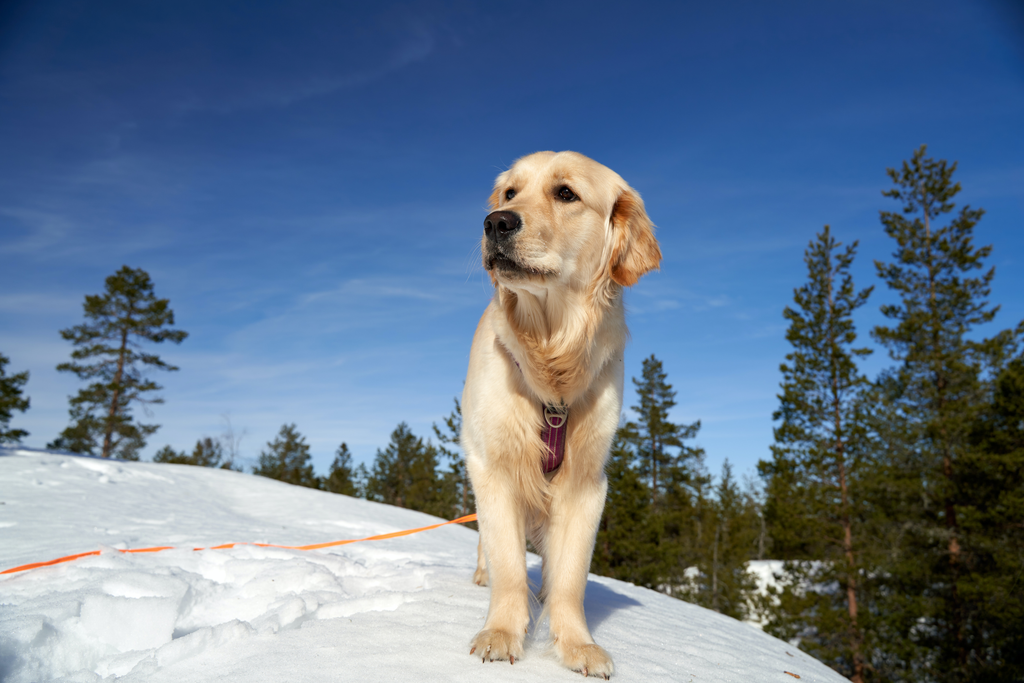
Hip and elbow dysplasia are the most common developmental joint disorders that your dog could be prone to. These conditions are characterized by a defect in the growth of joints and their corresponding sockets, particularly in the elbows and hips.
It is either the joint or socket becomes too large to appropriately "merge" with the other or one of them grows abnormally. The risk of being affected with these disorders is not just common in older dogs, but also among younger puppies and juveniles.
Interestingly, elbow or hip dysplasia can be treated by veterinary medicine, especially when it's spotted early on. There are also procedures that help alleviate joint pain and discomfort like laser therapy offered by many veterinary hospitals. On the other hand, ignoring these disorders can already affect your older dog's ability to enjoy a pain-free life since he will be suffering from constant bouts of discomfort each day.
Inflammation or infection
Infections and inflammations won't just affect canine joint health, but also trigger the development of arthritis in dogs in some cases. The most common culprits for these include fungi and bacteria that get in the spaces between the cartilage and joints to cause swelling and similar problems.
In severe cases, you will already need to get your hands on conventional medicines to reduce pain and do away with the swelling. There are even anti-inflammatory pain medications available these days that help stimulate blood flow to the affected areas for quicker recovery.
Imbalance in hormones
Hormonal imbalances and metabolic disorders, such as Cushing's Disease and hypothyroidism, can stimulate the overproduction and excessive release of hormones in an older dog's system. While these health concerns are commonly associated with muscle weakness and fatigue, they can also set off joint pain, arthritis, and osteoporosis in some cases.
It is important to take note that some dogs suffering from Cushing's Disease and hypothyroidism may require a bit of physical therapy as part of their healing process. Now we've got that covered, let's have a rundown of the risks that your senior dog can be possibly exposed to if arthritis in dogs is not properly and immediately dealt with...
The Possible Risks Arthritic Dogs Can Be Prone To

As we've emphasized earlier, it's not just your dog's pain that you should worry about when he's suffering from arthritis. Believe it or not, your senior pet is going to be in for a lot of health issues that will affect his overall well-being if this problem is not properly managed.
For this part of our blog, we will go over what these health issues are so you can easily help your dog as soon as the signs of arthritis get in the picture. Depending on the severity of the arthritis in dogs, these risks may pop up individually or in a simultaneous manner:
Chronic discomfort and pain
Joint pain and discomfort are no doubt the most pronounced effects of dog arthritis, particularly among senior dogs. Akin to all joint problems, these will only get worse over time if not properly and immediately taken care of.
Some types of joint pain caused by arthritis in canines can be so unbearable that they will require regular physical therapy accompanied by prescription meds for reducing inflammation. A few dogs with arthritis may also need orthopedic dog beds to help alleviate the pain.
Significant change in mobility
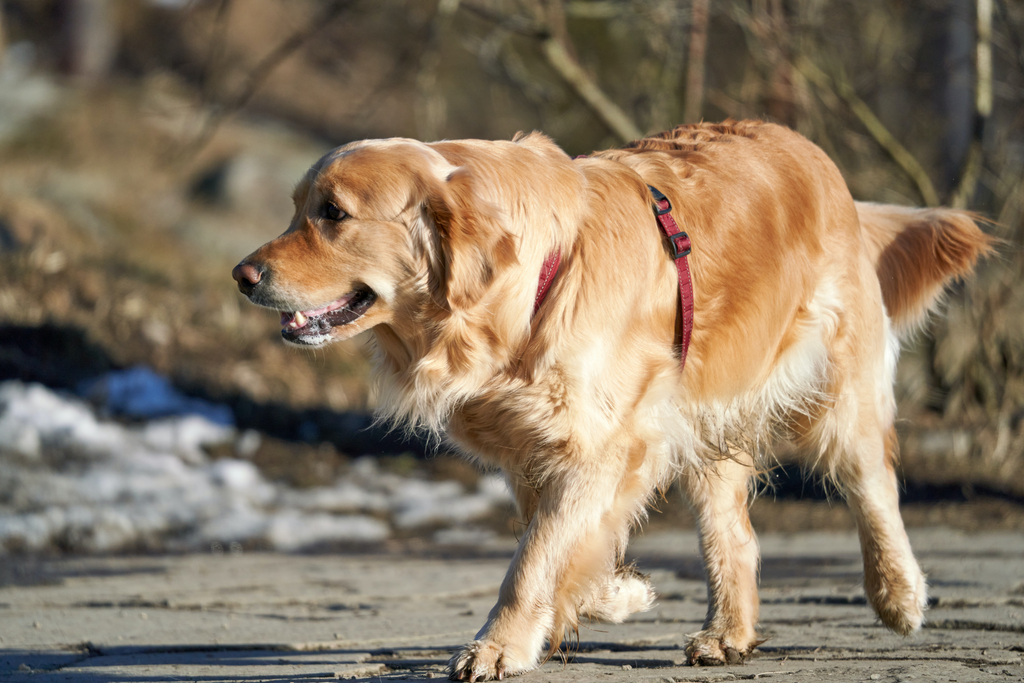
An arthritic dog's mobility is going to be very limited. Besides dealing with joint pain, your senior Golden Retriever may also be enduring other health problems like excessive weight or issues with his nervous system—pain signals in his body can go haywire at any moment.
While most dogs in their golden years won't be able to move as much compared to when they were still puppies or juveniles, a drastic change in mobility is expected if arthritis isn't given the attention that it deserves.
Increased susceptibility to obesity
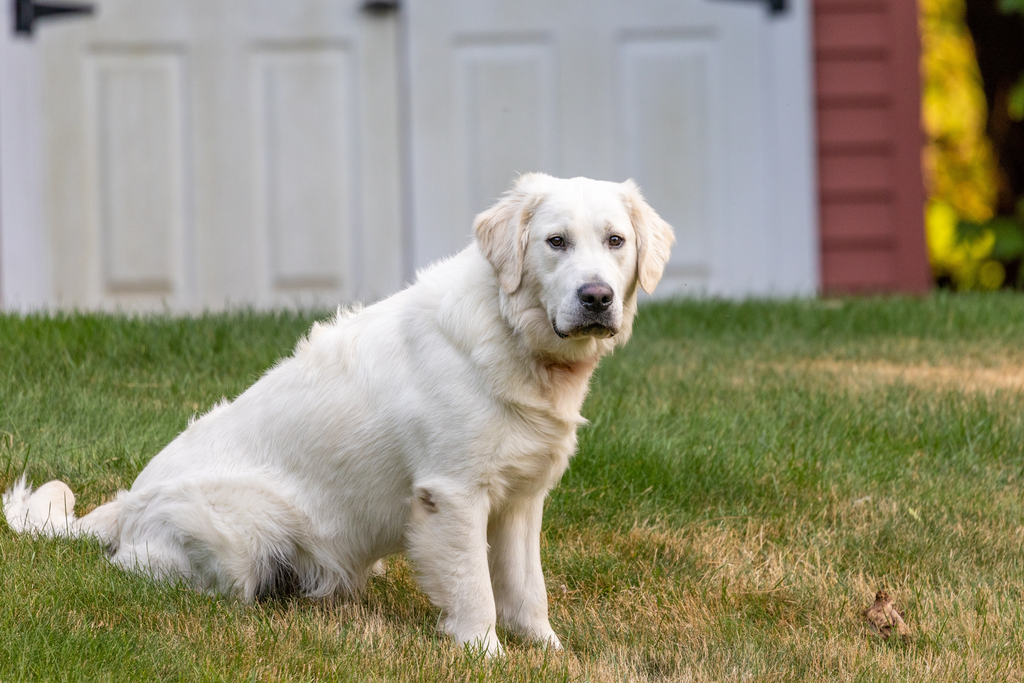
An aging dog afflicted with arthritis is much more vulnerable to excessive body weight because he won't be able to move around even if he wants to. Your pet could experience sudden pain and discomfort just by doing something as mundane as walking, so he chooses to stay idle.
Moreover, arthritic dogs can also have problems with their gastrointestinal tract, particularly in the digestion and absorption of nutrients, which can disrupt their normal metabolic functions. This increases their risk of developing obesity even more.
Vulnerability to muscle atrophy

Although a senior dog is somewhat prone to muscle atrophy due to his age, arthritis can inadvertently accelerate the thinning and weakening of his muscles. This is because apart from preventing movement, arthritis can also inhibit the ideal repair and growth of damaged muscle cells and tissues.
Your aging canine companion can lose as much as 20% of his lean muscle mass due to atrophy. Bolstering your old dog's diet and going for reliable joint supplements are two strategies you can use to keep muscle atrophy at bay. We'll discuss pointers like these more in detail as we go along.
Sudden changes in mood and behavior
The negative effects of arthritis are not just physical in nature. This health concern can also affect dogs mentally. In fact, dogs afflicted with arthritis are also highly susceptible to extreme stress and anxiety, especially if they've been suffering from this condition for a long time already.
It's not uncommon that an arthritic dog will likely take on a new persona sooner or later, which is usually a long shot from his typical self. If not given the right care and attention, arthritis can make even the most gentle senior Golden Retriever really grumpy.
Weakness to secondary health concerns
While we've already listed quite a few risks brought about by arthritis that can possibly affect the wellness of your much older dog, there are still actually a lot more that can disrupt your pet's health due to this disease.
Below are the secondary health concerns that your dog may be prone to during arthritis. Sure they may be designated as "secondary," but they shouldn't be overlooked at all. Akin to the previous risks that we've highlighted, these health issues may surface individually or in a simultaneous manner:
-
Heart problems caused by obesity
-
Constipation triggered by issues concerning the gastrointestinal tract
-
Separation anxiety set off by long periods of skulking and hiding
For the next part of our discussion, let's go over something that I'm sure you've probably wondered about once or twice already. Is dog arthritis in senior Golden Retrievers curable? Here are the key things you should keep in mind...
Is Arthritis in Senior Golden Retrievers Curable?

We'd just like to stress that dogs with arthritis cannot be cured of their condition. However, this health problem can still be managed and treated to maintain your pet's overall quality of life. There are actually a lot of ways that you can go when it comes to managing and treating arthritis, which we will discuss in a more in-depth manner in the succeeding sections.
Besides providing your senior pet with the appropriate anti-inflammatory, integrating a reliable joint supplement in your home care checklist will also help make things a lot better for your canine best friend who's suffering from arthritis.
And they're not as complicated as you think, too. But before we walk you through how to pull the whole thing off, let's check out the crucial indicators that your senior dog is already having a really difficult time with this health problem...
Signs That Your Dog's Arthritis Pain is Already Affecting His Quality of Life

As we've reiterated lots of times already, dogs with arthritis mostly have to deal with the deterioration of healthy cartilage and joints. It's not uncommon that the pain is going to be so excruciating at times that you will already consider procedures like physical therapy and laser therapy to help your dog.
However, before you think of going for these procedures, it is highly recommended that you get in touch with a pet wellness professional or a vet first. So without further ado, here are the indicators that arthritis pain is already affecting your dog's quality of life...
Your senior dog has an obvious limp.
A dog with arthritis often suffers from pain and discomfort in and around the limbs. While an aging dog is expected to conceal his agony, there will come a time when he won't be able to hold it anymore. You will see him with a limp during this time.
Depending on the severity of the arthritis pain, the limp may either be subtle or obvious. In the latter case, the problem has become quite severe and you should already have some strategies on how to keep your dog comfortable.
Your arthritic dog tends to vocalize more than he should.
Golden Retrievers aren't as vocal compared to other breeds like Pomeranians, German Shepherds, and Chihuahuas. However, they tend to vocalize more when they are under extreme stress or going through a lot of pain, like those brought about by arthritis in canines.
If you're noticing that your senior dog is noisier than usual, he may already be under constant arthritis pain. A simple way to help your dog during this situation is by giving him an anti-inflammatory while using premium and natural joint supplements in the process.
Your much older dog is not as enthusiastic to participate in games and activities.
Interestingly, Golden Retrievers are considered as one of the most suitable breeds to become service dogs. This is because of their patience, enthusiasm, gentleness, and overall temperament. Regardless of age, a Goldie won't say no to a game or some other type of fun activity—except when a health problem like arthritis gets in the picture.
If we're being honest, it can be rather tricky to convince an arthritic senior dog to get in on the action. There will even come a time when he's going to ignore his favorite games and toys! Unless this health concern is immediately dealt with the right way (like through the use of reliable natural joint supplements), things will just get worse over time.
Your senior pooch has difficulties getting from one position to another.

While an aging dog may not be as quick and sprightly compared to his younger counterparts, he should not have a problem shifting from a sitting position to a standing one at any given moment. This also applies to a lying position to a standing one.
One of the crucial signs that your dog's arthritis has already become serious is that he cannot get from one position to another without extreme difficulty. This is also accompanied by upset vocalizations as well as a display of pained facial expressions.
Your aging Golden Retriever suddenly has new bathroom habits.
Did you know that a dog suffering from extreme arthritic pain and discomfort will eventually have different, if not unusual, bathroom habits sooner or later? This may refer to the places your pet normally urinates or defecates in or his "going" schedule.
If you're noticing that your aging dog is taking care of his business in odd places like the living room or the kitchen, he may be doing it because the pain is keeping him from getting to the right spots. The same concept applies to very early or late bathroom activities as well.
He is drastically gaining weight.
One of the biggest problems linked with arthritis in senior dogs is weight management. An aging dog suffering from this health concern will normally spend most of his time idle, eventually leading to a sedentary lifestyle.
It's not uncommon that your much older pooch will even keep clear from gentle exercise in this situation.
Your senior dog seems to be grumpy and impatient all the time.
Golden Retrievers are deemed as one of the friendliest and nicest dog breeds. You will know if his arthritis has become so severe when he's acting way too differently than before. Chances are he will also show some unexpected aggression here and there, which is definitely not something you normally see in Goldies.
Managing Arthritis in Senior Golden Retrievers the Right Way
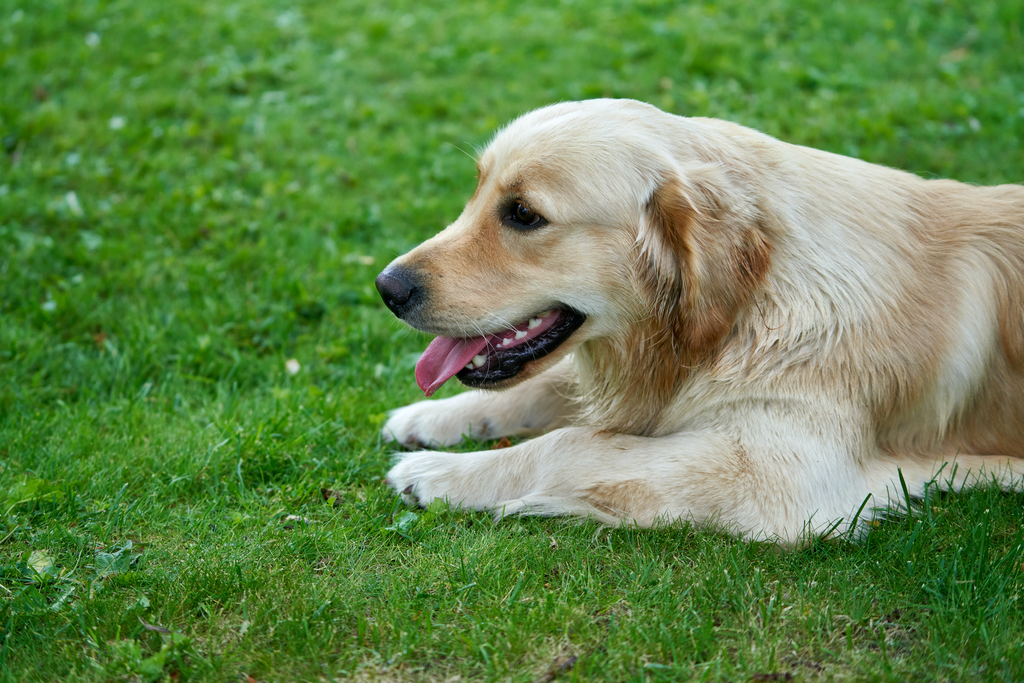
And now we've reached the part of our blog where we'll go over the top tips to remember when managing arthritis in aging Golden Retrievers. Before we start checking them out, though, we'd just like to remind you that these pointers should be done as soon as you observe the symptoms of this health problem—and not way after.
#1. This health problem needs to be dealt with immediately.
Early detection plays a very crucial role in the ideal management of arthritis in canines. This is the reason why the regular physical examination of your dog with a veterinary medicine professional every six (6) months or so is a must to spot health concerns like arthritis.
The sooner it's detected, managing and treating the whole thing will become more practicable.
#2. Consult with a vet or pet wellness expert.
This is closely related to the first pointer that we've given. It is very important to get in touch with a pet wellness pro or a vet when strategizing how to manage and treat arthritis. They can provide useful insights with respect to medications like the appropriate anti-inflammatory to use or joint supplements to go for.
#3. The right nutrition is crucial.
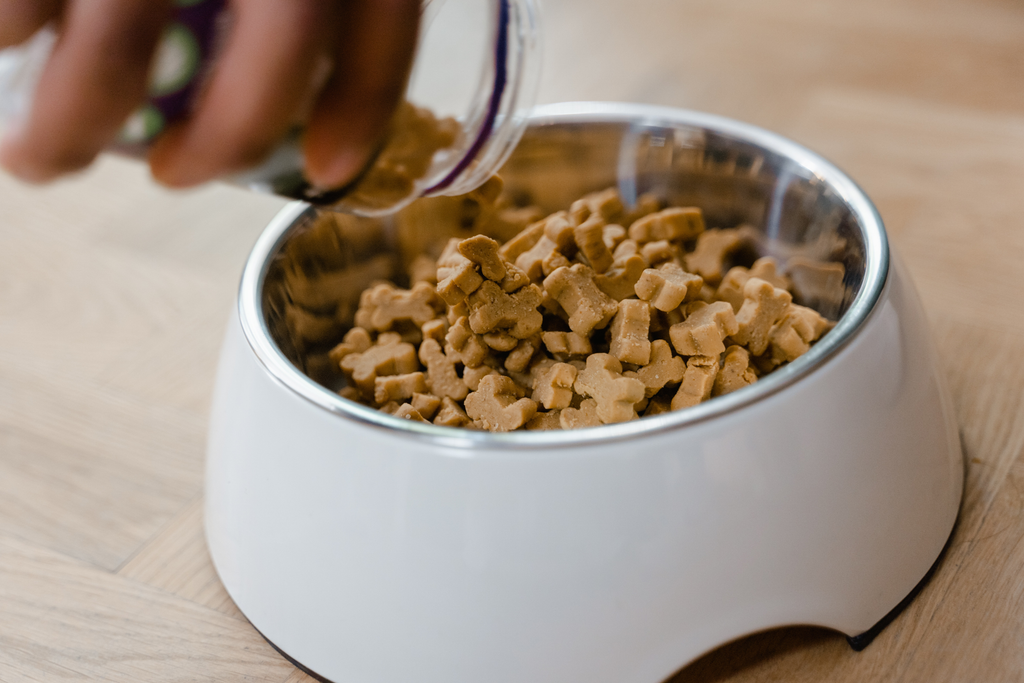
Your aging dog's diet can either make or break his chances of alleviating the pain and discomfort caused by arthritis. This is because maintaining a healthy weight while ensuring to get all the essential nutrients at the same time should be your ultimate goal.
Integrating components like Omega-3 fatty acids, chondroitin (derived from green-lipped mussel and considered an anti-inflammatory building block) as well as glucosamine in your dog's regular meals can help a lot.
There are also a number of joint supplements available these days that offer all of these beneficial nutrients in one convenient package. Just be thorough with your servings and frequency of meals for proper weight management.
#4. Give your senior pooch a regular low-impact workout.
Even senior Golden Retrievers with arthritis need regular exercise. However, it should be appropriate for their overall health and condition. This is where low-impact workouts get in the picture. You can choose from activities like swimming, walking, playing fetch, playing hide and seek, and moderate hiking, just to name a few. Make sure you also have lots of breaks in between.
#5. Provide lots of emotional support.

Your aging dog will need a lot of patience and understanding when he gets afflicted with arthritis. Always remember that he won't able to move and respond like he did before this health concern got in the picture.
Be extra considerate if he takes too long to follow your commands or complete a task that you're asking of him. When walking, don't be annoyed if he's lagging at times or suddenly stops moving. Don't forget to give him words of reassurance as you go along, too.
#6. Monitor his condition constantly.
Senior dogs with arthritis often display body language that gives you an idea of how they are doing. A prime example is when your aging pooch lies on the ground all of a sudden in the middle of a game. This basically means that he wants to take a rest.
#7. Get your hands on reliable joint supplements.
Believe it or not, using natural joint supplements is one convenient way to help manage and treat arthritis in canines. Apart from providing all the nutrients your dog needs to keep his joints and cartilage in tiptop shape, making your pet take one isn't going to be that tricky, too.
But the thing is zeroing in on the right natural joint supplement can be a bit challenging with all the choices available nowadays. Here's one option that you should definitely consider adding to your home pet care checklist...
A Natural Product to Consider When Easing Your Dog's Pain
Zumalka's GET UP N GO is designed to support healthy cartilage, tendons, and ligaments in the body. It is also formulated to help keep joint pain, inflammation, stiffness at rest, sensitivity to touch, or any similar ailments at bay. It's time you got your hands on a premium natural option that has already helped a lot of dog parents worldwide.



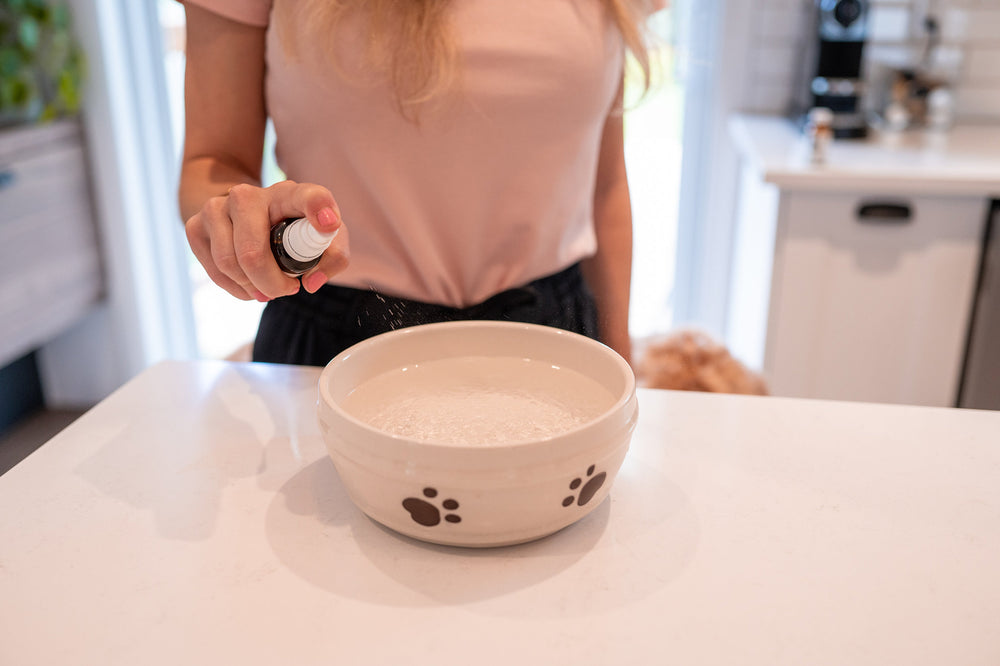


Leave a comment